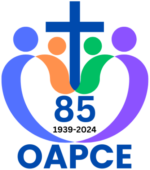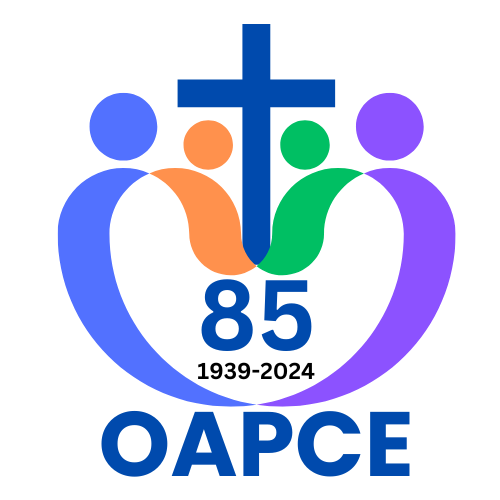Nurturing Human Rights, Dignity, and Respect: The Significance of Family Education in Ontario Catholic Schools.
In a world that often seems divided by differences, it is more important than ever to promote human rights, dignity, and respect. These fundamental values form the cornerstone of Ontario Catholic Family Life Education, instilling in students the knowledge and understanding necessary to navigate an increasingly complex and diverse society. By prioritizing these principles, we foster personal growth and contribute to the betterment of our communities and the progression of society as a whole.
“The unique partnership between schools and parents in Ontario’s Catholic education system ensures that students receive a well-rounded education, preparing them to become responsible, compassionate, and faith-driven individuals in the community.”
-J. Stephen, OAPCE Waterloo Director
Family life education plays a critical role in fostering personal growth and societal progress. It encompasses various aspects, including values, attitudes, actions, and beliefs, and is intricately connected to education as a whole. In the context of Ontario Catholic schools, the Family Life Education curriculum emphasizes the integration of body, mind, and spirit, placing a strong emphasis on values grounded in reason and faith. In this blog post, we explore the importance of human rights, dignity, and respect in Ontario Catholic Family Life Education.
The Ontario Catholic Elementary Curriculum Policy Document:
The curriculum in Ontario Catholic schools aims to form students holistically, nurturing their spiritual, intellectual, emotional, and physical well-being. The integration of body, mind, and spirit within the curriculum is intended to help students develop a balanced and harmonious understanding of themselves and their relationship with others and the world around them. The curriculum places great importance on the relationship between learning and believing, fostering an environment that encourages students to explore their own faith and values.
Family Life Education in Catholic Schools:
The Family Life Education curriculum in Catholic schools has a vision and clear goals. It values love, commitment, and responsible decision-making and aims to instill in students an appreciation for the dignity and sanctity of human life. Additionally, the curriculum seeks to develop strong communication skills, promote positive self-perception of one’s own sexuality, and help students understand and navigate the complexities of relationships.
Alignment with Catholic Beliefs:
Catholic beliefs about human life, sexuality, marriage, and family form the foundation of the curriculum. The teachings of the Church regarding the value and dignity of each individual, the sanctity of life, and the importance of family are integrated throughout. This aligns with the broader goal of Catholic education in nurturing the spiritual development of students.
“In Ontario’s Catholic schools, parents are partners in their children’s education, fostering a holistic and faith-based learning experience.”
J. Perri, Co-Executive Director, OAPCE
Roles and Responsibilities:
In the Ontario Catholic Family Life Education program, students are encouraged to take ownership of their learning and reflect on their own development. They are expected to embody qualities such as being a discerning believer and a caring family member. Parents have a crucial role to play in teaching values and supporting their child’s education, while teachers serve as facilitators, using effective instructional strategies and creating a safe and inclusive learning environment.
The Principal’s Role:
Principals in Catholic schools are tasked with creating an inclusive and welcoming school environment that reflects the value and dignity of each individual. They ensure the proper implementation of the curriculum and allocate necessary resources to support student learning. Additionally, they provide accommodations for students with Individual Education Plans (IEPs) to ensure their needs are met.
Community Partnerships:
Community partners can greatly enhance students’ learning experiences in Family Life Education. Collaborations with groups advocating for human rights, social justice, and environmental sustainability provide students with a broader understanding of their place in the world and encourage them to actively contribute to positive societal change.
“Catholic education in Ontario thrives on the active involvement of parents, creating a strong partnership that nurtures academic excellence, moral values, and spiritual growth.”
-M. Brancatella, OAPCE York Director
Conclusion:
Ontario Catholic Family Life Education curriculum aims to instill values of human rights, dignity, and respect in students’ lives. It honours the teachings and beliefs of the Catholic Church while fostering personal growth, self-awareness, and an appreciation for the diversity and interconnectedness of our world. All stakeholders, including students, parents, families, teachers, principals, and community partners, collaborate to nurture an environment that embodies the principles of inclusivity, understanding, and empathy. By prioritizing human rights, dignity, and respect, Ontario Catholic Family Life Education strives to create a generation of compassionate and responsible individuals who will positively contribute to their communities and society as a whole.
OAPCE encourages all parents to share the new Family Life Education curriculum resources:
The Ontario Association of Parents in Catholic Education (OAPCE) is excited to share with all parents across the province the new Family Life Education curriculum for grades 1 – 8 in Catholic schools in Ontario from the Institute for Catholic Education (ICE). You can find the curriculum documents, Frequently Asked Questions – for Parents, and Topics at a Glance – Support Resource on the ICE website. As partners with ICE, we fully support their curriculum and continue to advocate for all schools and school boards to use this resource to teach our children these important aspects in their lives.
The resources provided by ICE offer valuable guidance and information for parents. The curriculum documents provide a comprehensive overview of the learning expectations and content covered in each grade level. The Frequently Asked Questions section addresses common concerns and provides clarification on various topics related to Family Life Education. Additionally, the Topics at a Glance – Support Resource highlights key themes and offers suggestions for how parents can continue the learning at home.
By exploring these resources, parents can gain a deeper understanding of the Family Life Education curriculum and actively engage in their child’s education. OAPCE encourages parents to make use of these resources and collaborate with educators and the school community to ensure a holistic and nurturing learning experience for their children. Together, we can nurture a generation that upholds the values of human rights, dignity, and respect in all aspects of their lives.
Resources:
Institute for Catholic Education. New Family Life Education Curriculum and Support Resource. https://iceont.ca/new-family-life-education-curriculum-and-support-resources/
Family Life Education. Ontario Catholic Elementary Curriculum Policy Document, Grades 1-8.
https://iceont.ca/wp-content/uploads/2024/01/FLE-2023-Curriculum-Gr-1-8-COMPLETE-3.pdf


